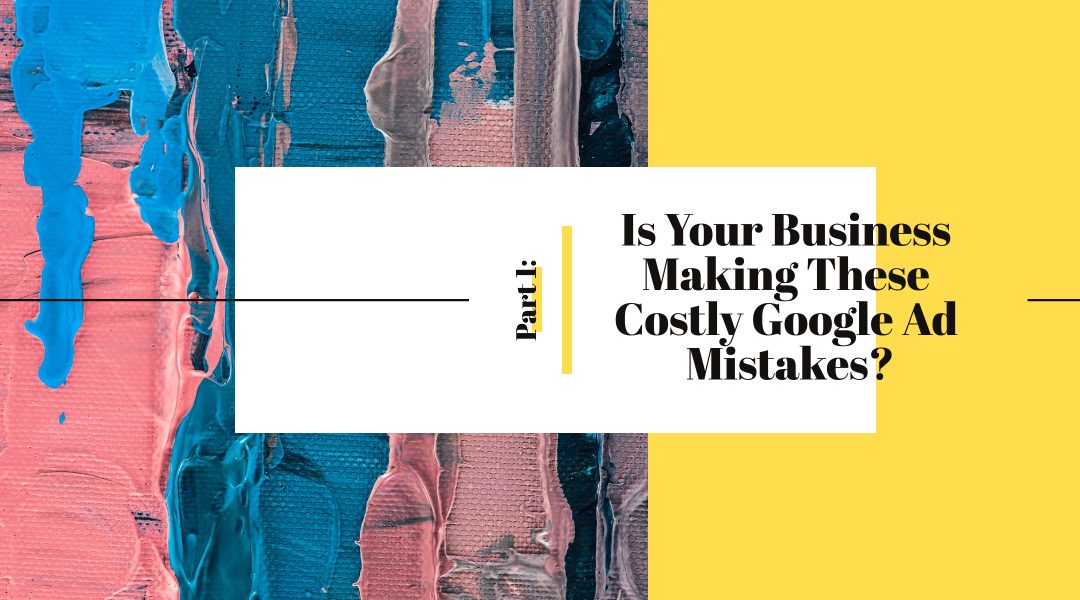Can Google AdWords help your business achieve its marketing objectives…
like generating more quality leads, driving more traffic to your website and increasing sales? The answer, as you might expect, is “it depends.”
It depends on how well you create ads that target the right customers and induce them to click on your ad. It also depends on what web page your ad sends them to when they click on it. For example, if you pick the wrong keywords, you might get lots of clicks, but from prospects who have no interest in your products and services. If you use the right keywords but send people to a web page that has nothing to do with your ad, you’ll increase website traffic, but you probably won’t get the conversions you want.
When You Do It Right, AdWords Is a Powerful Marketing Tool
Here’s the thing: AdWords can be, let’s say, a little complicated, something in other words you shouldn’t blindly stumble into. Using AdWords without knowing how it works or missing the wealth of marketing opportunities its many features offers, is a little like trying to fly a jumbo jet without taking any lessons—one mistake, and you’ll be on the ground soon after you take off.
When you use AdWords correctly, on the other hand, the rewards for your business can be substantial. Consider for example some of these metrics from SlideShare:
- On average, businesses that use AdWords generate $2 in revenue for every $1 they spend
- AdWords is (again, on average) 54% successful in generating high-quality leads (whereas local TV advertising is just 1% successful)
- In 2014, about 3 of every 4 marketers who use AdWords planned to increase their AdWords budgets
Execution Is Everything
The operative words in those metrics are “on average,” which means of course that not every marketer does this well, and that some do much better than this. They say “knowledge is a powerful thing,” and nowhere is that more true than when it comes to pay-per-click (PPC) advertising. Said differently, to be successful with AdWords, you need to know what to do and, equally important, what not to do.
That said, here are 10 of the most common mistakes marketers make when using AdWords:
1. You Need to Pick the Right Keywords
Choosing keywords for your paid ads can be a dicey business—choosing the wrong ones will put your ad in front of the wrong people, people who aren’t really interested in your business. For example, if you have a used car dealership and choose keyword phrases like, “buy cars in Pittsburgh,” a lot of people who see your ad will be searching for new cars, not used ones.
If your ad copy also neglects to mention that yours are used cars, they’re going to click on your ad, go to your website and bounce out. Here’s the rub—you still pay for that click. Fortunately, you can get the help you need from online resources. Google’s AdWords Keyword Tool is among the best.
2. You Need to Optimize Your Ads for Mobile
Don’t assume that the prospective customers for your AdWords ad will see it on a laptop or desktop computer. In fact, most of them will see it on a smartphone or tablet. Google offers a special mobile search feature, and you need to learn how to use it properly. You also need to ensure that your ads will work on mobile devices. That generally means less ad copy and shorter keyword phrases.
In addition, the fact that many people will see your ad on a phone means you can make it easy for them to call your business, right while they’re seeing your ad. These “call extensions” can substantially increase click-thru rates and conversions, as AdWords explains:
“Call extensions let you add phone numbers to your ads, which can significantly increase clickthrough rates. When your call extensions show, people can tap or click a button to call your business directly. That means more customer engagement with your ads, and more chances for you to get and track your conversions.”
Be sure to look for Part II of Common Google Ads Mistakes. To learn more about the ways our SEO, social media, web design, web audit and PPC services can help you boost sales and grow your business, contact us today.
Book Your Free Consultation Today

Founder & CEO of ThinkFlame, Shelly Patrick, trains individuals and companies to understand how their marketing affects their sales conversation and how to integrate marketing into their yearly plans for consistent growth.

